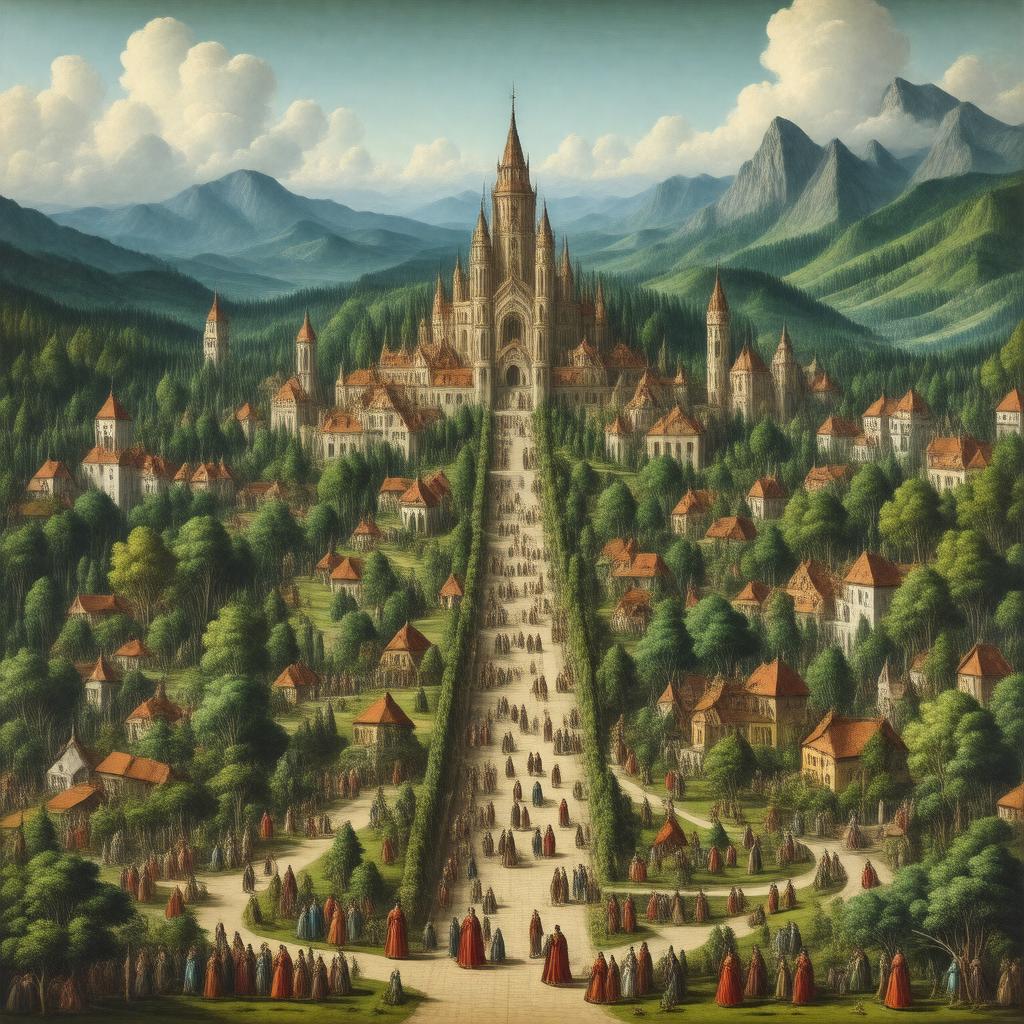Prompt
"Generate an image of a harmonious and idealized cityscape representing Utopia, a fictional place described in Thomas More's 1516 book. The scene should depict a vibrant, thriving community with lush greenery, majestic architecture, and happy inhabitants engaging in various activities, showcasing a perfect blend of work, leisure, and social interaction. The style should be reminiscent of Renaissance-era illustrations, with attention to detail and a sense of optimism and possibility."

